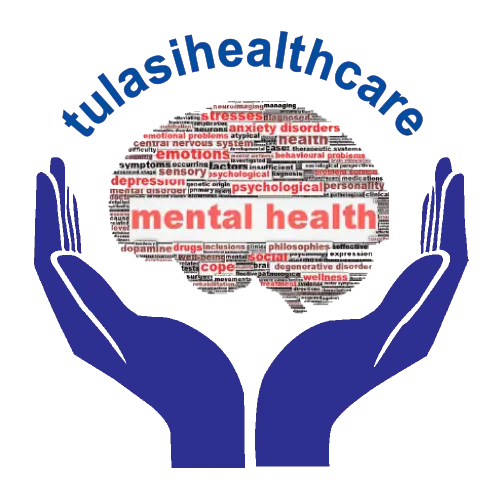Long Care Home For Chronic Mental Illness: Tulasi Healthcare Mehrauli

Mental health, as an area of compass, has lately attracted a lot of attention. still, the challenges related to habitual internal ails still bear further mindfulness and installations. Schizophrenia, bipolar complaint, and major depression are exemplifications of habitual internal ails that can not be effectively treated without long- term interventions.
In similar circumstances, recuperation centres for these diseases come vital as they give cases with acceptable care through integrating medical treatment, cerebral remedy and social support. This paper examines the places, advantages and difficulties involved with recovery centres dealing with habitual internal ails.
Chronic Mental ails An Overview
These last over a long period and frequently need constant operation. They generally enable an individual to perform their diurnal conditioning.
Schizophrenia: This generally entails visions, visions or indeed, disorganized thinking. Bipolar complaint This sickness involves extreme shifts between manic highs and depressive lows.
Severe Depression: A patient’s feeling of sadness and forlornness is what characterizes this pattern. Compulsive-obsessive complaint It implies having to repeat unwanted studies.
The part of Rehabilitation Centre in the Care of Chronic Mental ails
These recuperation centres are set up to give structured surroundings within which cases can get ongoing backing. These are substantially:
- Medical treatment: drug operation is a core element in treating habitual internal ails. Psychiatrists working at these recuperation centres cover and acclimate this symptom control.
- Remedial interventions: These include cognitive behavioral remedy, dialectical geste
- remedy, and other substantiation-grounded practices aimed at aiding individualities in managing with or prostrating their conditions.
- Skill Development: To restrict into society and live meetly, life chops, social chops, and vocational chops are part of what recuperation centres educate.
- Support networks: There’s a need for important support during recovery. Family members are involved in utmost installations in the treatment process, and sessions are fostered among the cases.
- Holistic approaches: Yoga, contemplation, art remedy, and numerous further holistic practices live in several centres that support heartiness.
Advantages of Rehabilitation Centre
There are several benefits that rehab centres have for individuals with chronic mental disorders:
- – It is a holistic treatment where medical needs are combined with psychological ones.
- – The centre provides a well-structured environment that ensures patients do not get involved in any relapse or harm.
- – Continuous monitoring by professionals helps to evaluate the effectiveness of the treatment plan and consequently make corrections towards it.
- – These practical skills they learnt to enhance their independence and quality of life.
- Support from peers: A good centre provides community and support, which adds much to recovery.
Problems Facing Rehab Centre
Whilst these rehabilitation institutions are much-needed sources of help, they also come across numerous challenges, most prominently being:
Psychological Stigma: This is one main reason that can prohibit people from coming out to seek help. Therefore, it will be vital to create awareness amongst the people regarding the rehabilitation process toto gain their trust.
Financial constraints: Most centres suffer from a lack of funds; other times, they are poorly financed; hence, services and facilities fall short.
Distance: People who live far away geographically or because they cannot afford transportation fees.
Personal Attention: All patients have individual needs, thus meaning that personal care cannot be supported while they are hospitalized as a group.
Case Study: A Victory of Rehabilitation
For instance, consider a patient who has been suffering from bipolar disorder and had to be admitted to hospitals repeatedly in the last years because of the devastating effects it had caused in his life. He was given an individual therapy package, medical management package and vocational training at admission into a rehabilitation centre.Gradually, patients began developing coping mechanisms to regain self-confidence and eventually land a job.
This shows that comprehensive rehabilitation can potentially transform people’s lives
Innovations in Rehabilitation
Even mental health rehabilitation centre is changing itself with time. Some of these contemporary innovations are:
Teletherapy: Therapy has become accessible to many through remote sessions.
Peer Support Programs: People use the experiences of those close by who have learnt how to handle their conditions.
Digital Tools: There are mobile apps and web-based platforms that help with both self-management and therapy.
The Future of Rehabilitation Centre
Indeed, bright prospects await rehabilitation centres for chronic mental illnesses with ongoing efforts to care better. These are:
Integrated Care Models: This involves integrating physical and mental health to meet people’s integral needs.
Community-Based Programs: Such programs shall be invented to enable patients to be cared for while staying near their homes.
Research and Development: Investigation of the invention of new treatments and therapies will undoubtedly increase the potential for recovery or rehabilitation.
Policy Support: This will be an integral component in increasing access to the rehabilitation service by promoting policies that allocate more funds to reduce stigma.
Conclusion
It is given this that rehabilitation centre for chronic mental illness patients are significant in offering the comprehensive as well as continuous care required by such patients. The centres provide medical treatment and therapeutic interventions, offer skill training, and provide a conducive environment that equips patients with more control over their condition to have a satisfying life. Though the challenges in the form of prejudices and lack of funding stay good, innovation and dedication to specific care give a bright outlook to mental health rehabilitation.
Final Thoughts
Though the journey to mental health recovery is usually long and arduous, individuals who have chronic mental illness can be sentenced to have gained much ground towards living better lives. These rehabilitation centre work at the frontline with suitable pools of tools and other resources necessary for empowering patients on their journey towards recovery.
Related Treatments
Psychiatrist in other Locations
Top Specialities

Get In Touch With Us

